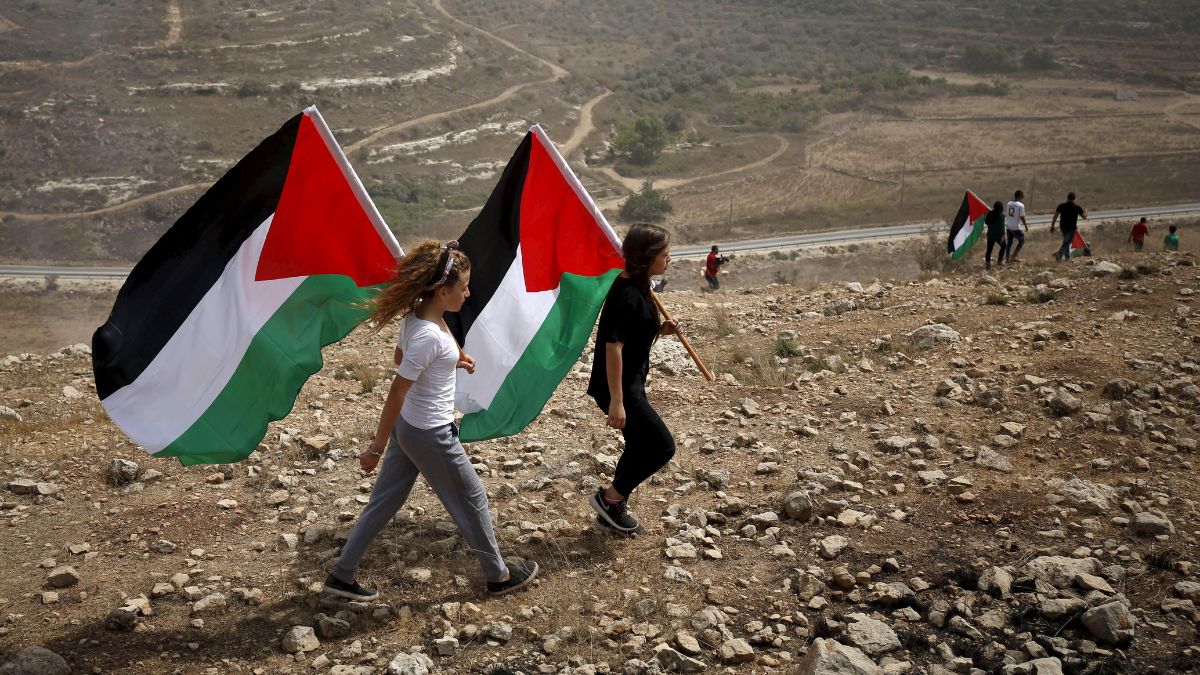More and more countries are recognising the Palestinian state, but such a state may just exist on paper as Israel continues to occupy the West Bank, and the US-Israeli vision for post-war Gaza calls for the expulsion of all Palestinians. What kind of a state would Palestine be without any land and people to govern?
Belgium on Tuesday joined the likes of France and Australia to pledge the recognition of the Palestinian state. But such a state may just exist on paper in the absence of any land or people to be governed.
Under the two-state solution endorsed by most of the international community, a State of Israel for Jews and a State of Palestine for Arabs are envisioned in the contested territory that was once the British Mandate for Palestine. The Palestinian state would comprise the West Bank, Gaza Strip, and East Jerusalem.
However, Israel is currently considering the annexation of the West Bank that it has illegally occupied since 1967. Moreover, the US-Israeli vision for post-war Gaza Strip includes the expulsion of all Palestinians from the territory in what’s essentially state-sponsored ethnic cleansing. President Donald Trump has said that the United States will annex the territory and convert it into a resort town.
With no territory, people, or a government, the Palestinian state would just be limited to paper for all practical purposes.
Moreover, the recognition of the Palestinian state as a pressure tactic does not appear to be working as Prime Minister Benjamin Netanyahu and his far-right allies have been doubling down on their anti-Palestinian stance.
Why are countries recognising Palestinian state?
Since the Israel-Hamas War began in October 2023, around a dozen countries have recognised or pledged to recognise the Palestinian state.
President Emmanuel Macron has announced that France will recognise the Palestinian state in September. He said it was part of France’s “commitment to a just and lasting peace in the Middle East”.
“We must also guarantee the demilitarisation of Hamas and secure and rebuild Gaza. Finally, we must build the State of Palestine, ensure its viability, and ensure that by accepting its demilitarisation and fully recognising Israel, it contributes to the security of all in the Middle East. There is no alternative,” said Macron.
Additionally, Australia, Canada, the United Kingdom have also pledged conditional recognition of the Palestinian state. Previously, Ireland, Norway, and Spain had recognised the Palestinian state in 2024, and Carribean nations of Barbados, Jamaica, Trinidad and Tobago, and the Bahamas had recognised it before them.
The main purpose is to put pressure on Israel to end the war with Gaza and amend its policy regarding Palestinians. However, there are no signs that increasing recognition of Palestinian state has achieved it. After all, the overwhelming majority of the United Nations (UN) member-states —147 of 193— already recognise the Palestinian state and frequently slam Israel’s actions. But none of that has led to a change in Israel’s policies.
The Israeli war in Gaza has killed tens of thousands of Palestinians — the majority of whom are civilians are civilians as per Israel’s own admission. Nearly the entire pre-war population of 2.2 million people has been displaced and the vast majority of the enclave has been turned into rubble from Israeli bombardment. The strip has a severe humanitarian crisis that is worsening by the day as a result of Israel’s policy of restricting the flow of aid. The UN-backed group that monitors hunger has declared a famine in the strip. In addition to dozens of deaths from hunger, hundreds of Palestinians have been killed in attacks while they were at food distribution sites. In July, the UN published a video that showed Israel firing at Palestinians at waiting for a UN food convoy.
No real Palestinian state on horizon
Despite worldwide condemnation of its actions in Gaza and pressure campaign with the recognition of Palestinian state, there has not been any change in Israel’s policy, and no real Palestinian state is on the horizon. Instead, Netanyahu and his extremist allies have hardened their positions.
In the wake of increasing recognitions, Netanyahu is considering annexing parts of West Bank and has called a meeting to discuss potential annexation on Thursday, according to CNN.
Separately, far-right minister Bezalel Smotrich has called for the phased annexation of Gaza.
In any case, Netanyahu has endorsed Trump’s plan to expel all Palestinians from Gaza and complete occupation of the vacated strip.
With the annexation of West Bank and Gaza, the space for a Palestinian state would be over.
Even today, there are real obstacles in the pathway of a Palestinian state. The Palestinian territories are separated and politically split. While Hamas had run Gaza since 2007 until 2023, West Bank is partially administered by Palestinian Authority (PA) under the Oslo Accords.
End of Article

)

